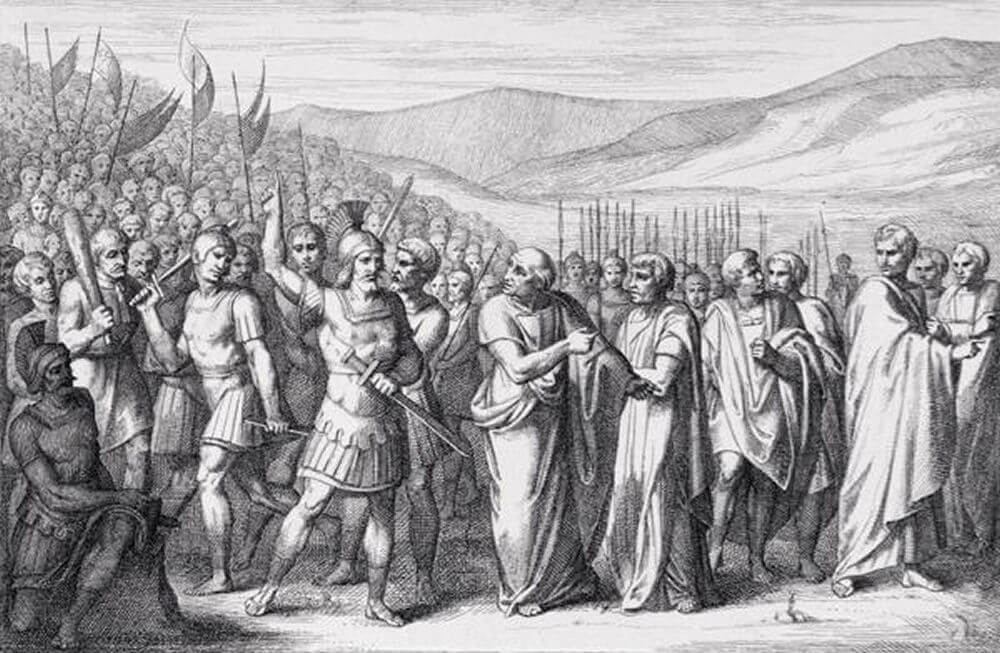The Tribune of the Plebes (tribunus plebis) was a magistracy established in 494 BC. It was created to provide the people with a direct representative magistrate along with the magistrates of the senate.
The office was sacrosanct (legally protected from physical harm), and provided ius auxiliandi, or the right to rescue any plebeian from the hands of a patrician magistrate.
Interfering with the authority of a Tribune could result in capital punishment. By 449 BC, the powerful right of intercession was acquired (ius intercessionis, or to veto any act or proposal of any magistrate).

'The Secession of the People to the Mons Sacer', engraved by B. Barloccini, 1849
Originally, two Tribunes were elected, but along with the right of veto this was increased to ten. They were the only magistrate capable of convening the plebeian assembly, and therefore held the right to propose legislation to the people.
Its power to both propose and veto legislation made the office a powerful tool in the early struggles between patricians and plebes, and later struggles between ideological conservatives and "populares" (Related Page: The Gracchi Brothers).
It was also a position of volatility and possible danger due to the potential for demagoguery among its office holders. The volatility of the later Republic led to Tribunes being stripped of their legislative authority by the dictator, Lucius Cornelius Sulla, but these powers were restored shortly thereafter.
It continued to be an immensely powerful tool of factional politics, however, leading to policy and legislation that helped bring down the Republican system.
At the end of the civil wars that ended the Republic, Augustus was awarded all the powers of the Tribunate (tribunitia potestas), in addition to the governing authority of the Consulate, cementing him as a supreme individual Princeps, or Emperor.
The office continued to exist as an individual magistracy into the Imperial period, but as the emperor held ultimate authority to enact and veto legislation, its importance was, by now, extremely limited.
Did you know...
A Tribune's responsibility was to defend the rights and interests of plebeians. They served in the 'Comitia Tributa' and, unlike Senatorial officers, were accompanied by 'viatores' instead of lictors as a symbol of authority.



